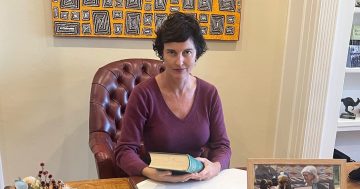 The Australian Federal Police’s (AFP) Australian Centre to Counter Child Exploitation (ACCCE) has issued a warning to parents and carers that young teenagers are being offered cash and food vouchers in exchange for self-producing and sharing child abuse material (CAM).
The Australian Federal Police’s (AFP) Australian Centre to Counter Child Exploitation (ACCCE) has issued a warning to parents and carers that young teenagers are being offered cash and food vouchers in exchange for self-producing and sharing child abuse material (CAM).
Commander with ACCCE and Human Exploitation for the AFP, Hilda Sirec said that over the past couple of months, the Centre had received an increase in reports of children self-producing CAM for financial incentives.
“Online offenders have typically used emotionally-coercive tactics to exploit children into self-producing CAM,” Commander Sirec said.
“But investigators have seen a growth in cases involving young teenagers being offered incentives such as money, food deliveries and vouchers,” she said.
“Children as young as 10 are also being targeted with incentives such as in-game currency on popular online games.”
Commander Sirec said offenders were targeting children through social media and this new tactic left vulnerable children at particular risk.
She warned that school holiday periods typically led to an increase in reports of self-produced CAM as children spent more time online unsupervised.
“Once an image has been shared, it can end up anywhere, including on some of the world’s most depraved dark web child abuse forums as offenders often circulate images among themselves,” Commander Sirec said.
“Disturbingly, we also know offender networks routinely trade information about particular users of social media who are susceptible to incentives or coercion, which will lead to repeated contact requests from other predators.”
The Commander said parents and carers should be aware of some tell-tale signs that their children could be victims of this new trend, such as unexplained food deliveries or children having additional money in their accounts.
She said the start of the school holidays was the perfect time to sit down and talk to children about their online activities, including the type of conversations they were having online and with whom.
“It is important that parents approach these conversations with their child openly, in a non-judgmental way,” Commander Sirec said.
“Ensure your child is comfortable coming to you if an issue arises and make it clear that nothing is so bad that they can’t tell you or another trusted adult about.”
Commander Sirec said one way for parents to start the conversation was with a Family Online Safety Contract, developed by the AFP’s online child safety program, ThinkUKnow, and the Carly Ryan Foundation.
The AFP’s two-page Safety Contract can be accessed at this PS News link.











